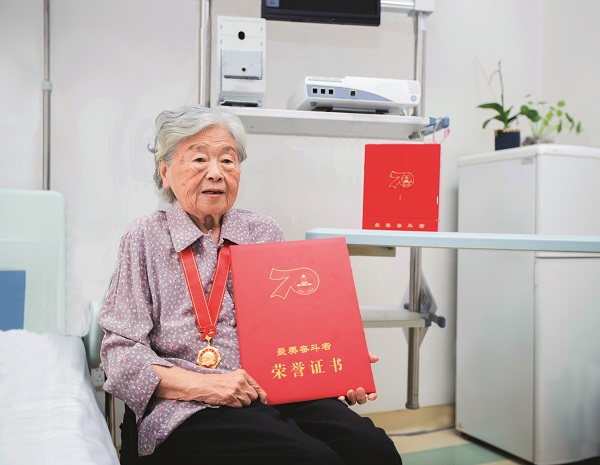NAIROBI, April 4 (Xinhua) -- Bako Auta, a resident of Hulumi village in Nigeria, vividly remembers the transformative impact of China's digital television aid initiative.
"Before that, our lives were limited to the village. The televisions donated by China allowed us to see the world beyond the fence," Auta said about the installation of free equipment by the Chinese digital television operator StarTimes seven years ago.
Auta's experience is similar to that of numerous beneficiaries across Africa who have been touched by the "Access to Satellite TV for 10,000 African Villages" project in remote rural areas.
The initiative, conceived during the Forum on China-Africa Cooperation (FOCAC) summit in Johannesburg, South Africa, in 2015, aims to connect 10,000 African villages to satellite television.
By December 2023, this China-aided project had successfully completed construction work in 20 African countries, encompassing 9,512 villages and directly benefiting over 190,000 households.
Speaking at the handover ceremony of the China-aided satellite TV project in Mozambique, President Filipe Nyusi praised its role in bridging the digital and information gap between rural and urban populations. He emphasized its significance in enhancing livelihoods, promoting public education, and fostering social development.
Under the project, each recipient village received two sets of solar-powered projector TV systems and one solar digital TV integrated terminal system for public areas, free of charge, as confirmed by contractor StarTimes. These installations have become vital conduits for villagers to access information from the outside world.
Murindahabi Augustin, a resident from an assisted village in Rwanda, expressed gratitude. "Through the TV, we can get information about modern agriculture, government programs, prevention of infectious diseases, and more," Augustin said.
StarTimes broadcasted all 52 matches of the 34th African Cup of Nations (AFCON) in early 2024, garnering widespread acclaim. The inclusion of commentary in local languages such as Kiswahili, Yoruba, and Hausa resonated with fans.
"Thanks to the Chinese enterprises that connected satellite TV signals for our village, we can now finally sit together as a family and watch matches!" said Abissa Kouassi, a villager from Yaou village in Cote d'Ivoire.
Ma Shaoyong, director of overseas public relations for StarTimes Group, highlighted the company's efforts in democratizing digital TV across Africa. He also emphasized the substantially reduced costs for installation and viewing, making it accessible to average households.
"The installation fee for a StarTimes set-top box stands at a mere 10 U.S. dollars, with subscribers required to pay a monthly fee ranging between 3-5 U.S. dollars, granting access to nearly 30 digital TV channels spanning news, sports, and movies," said Ma.
To ensure the sustainability of the project, StarTimes has trained local technicians in recipient villages to conduct after-sales maintenance. Nunes Guardagea, a Mozambican technician, finds profound fulfillment in his role.
"I'm able to help people in remote areas access information and enrich their lives," Guardagea said.
As the project continues to enlighten remote areas of Africa, StarTimes is advancing its localization strategy. In Kenya, the enterprise has invested in producing local dramas, resonating with audiences by using Kiswahili.
Timothy Owase, CEO of the Kenya Film Commission, applauded these productions as narratives that authentically represent local stories. ■








